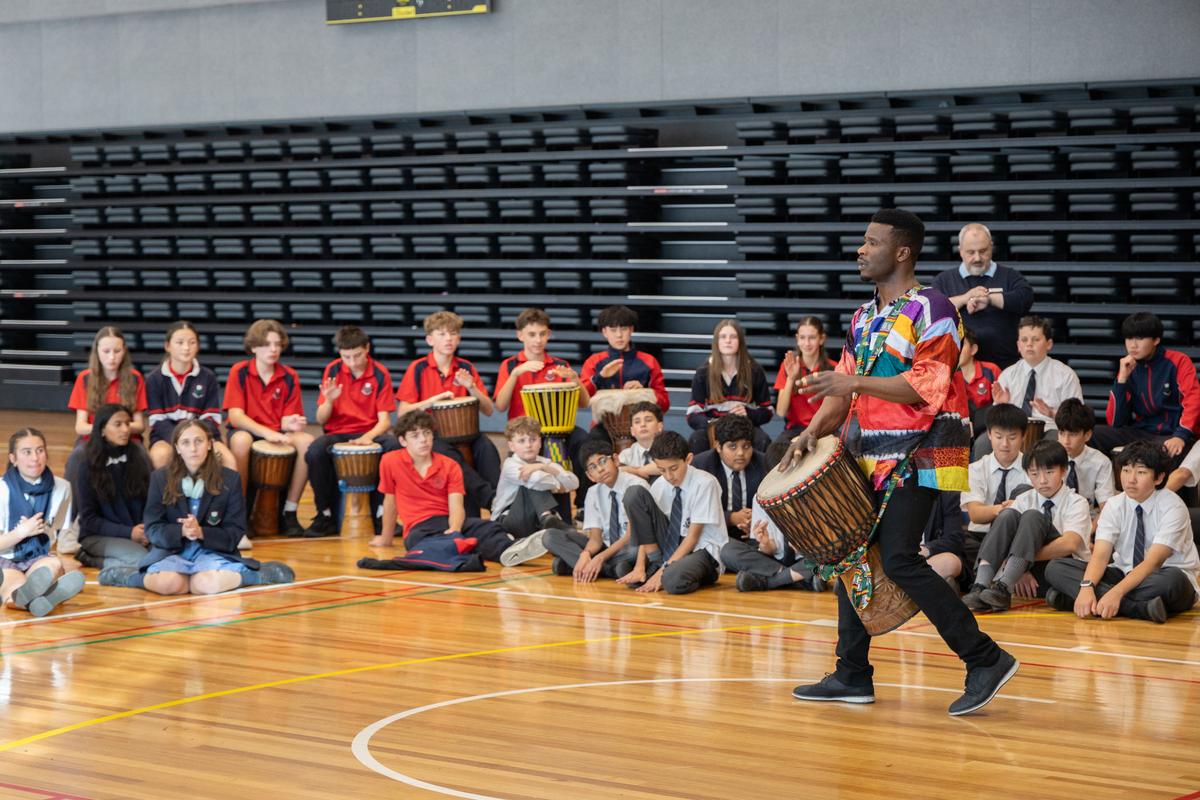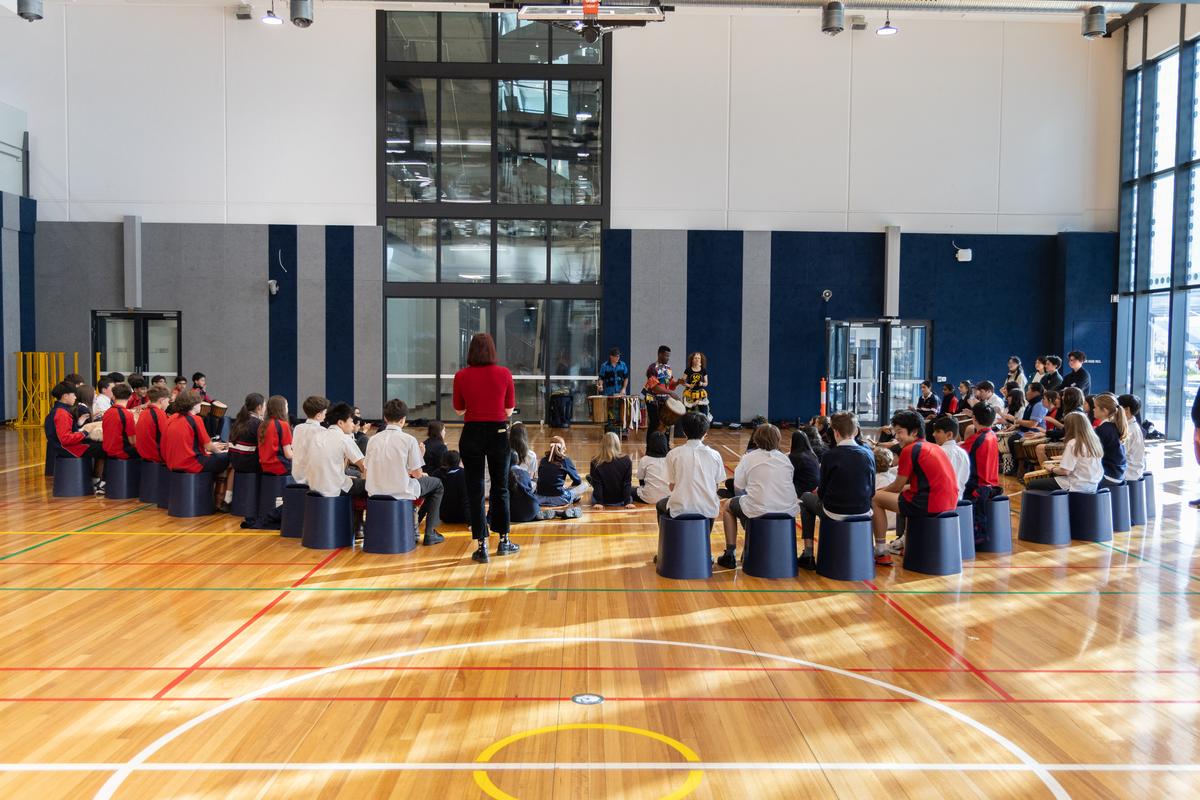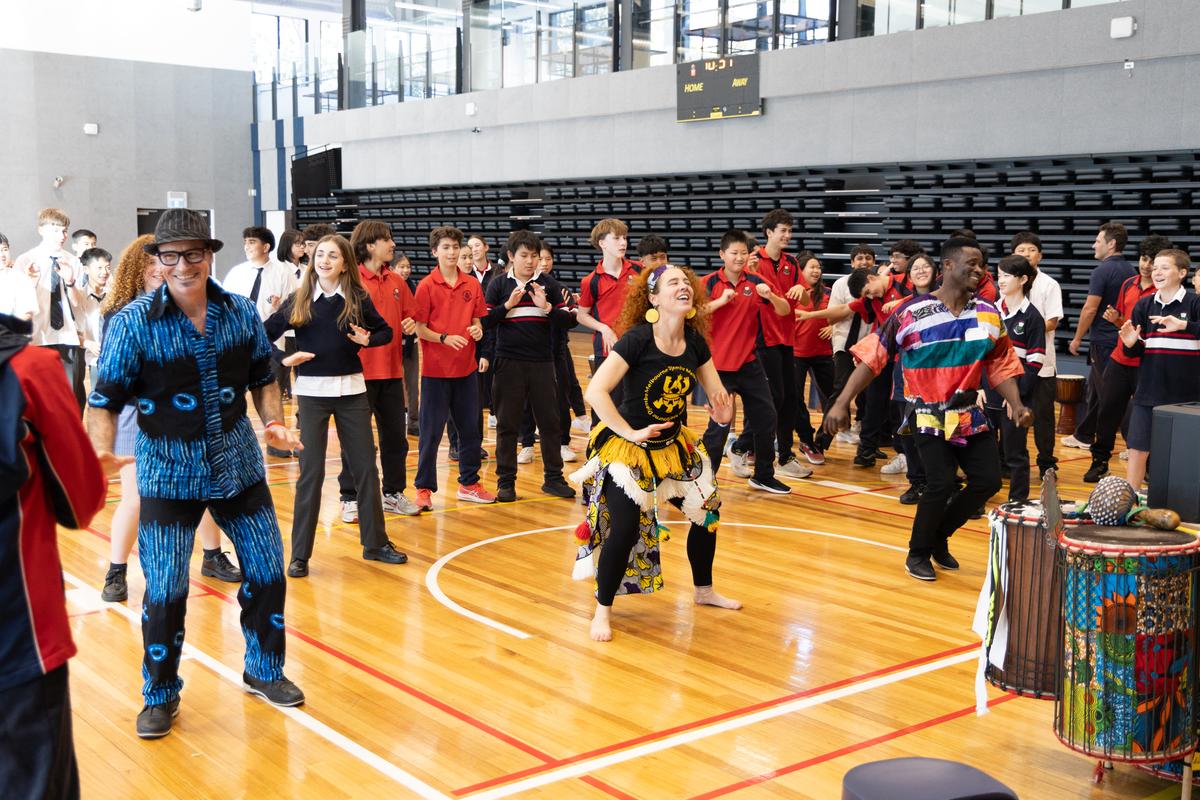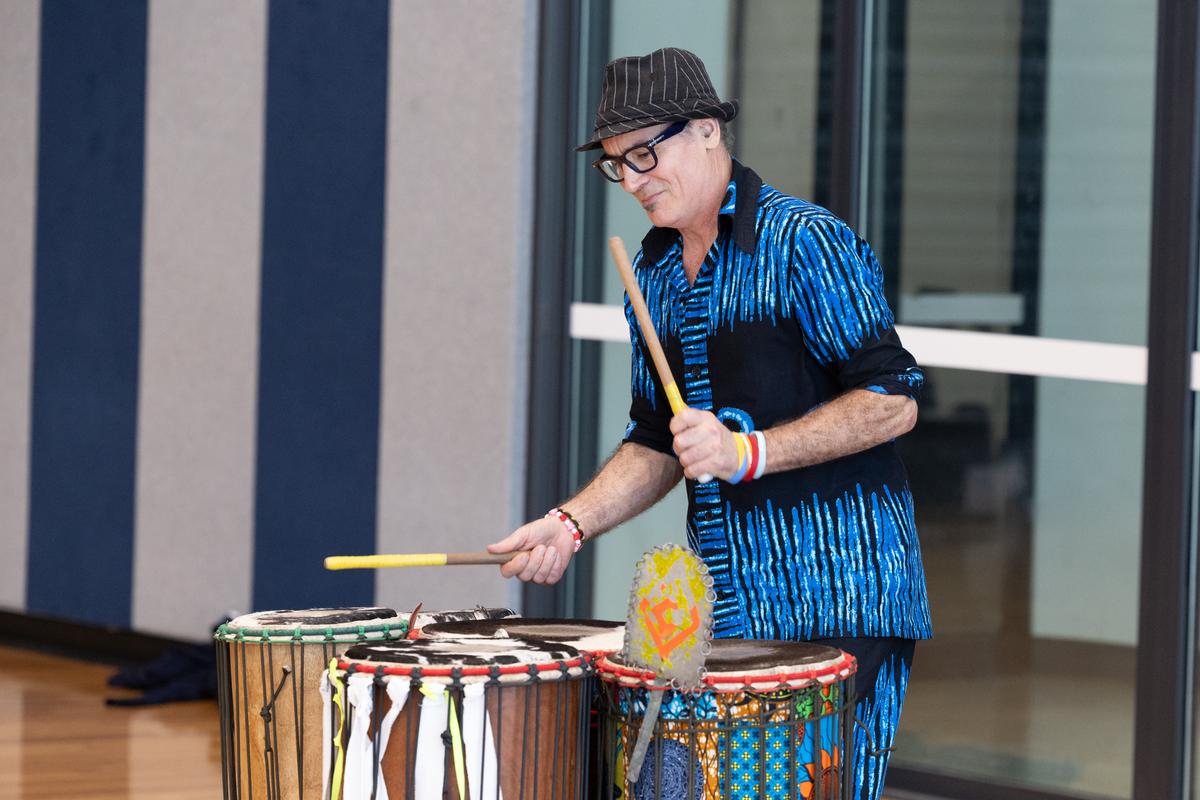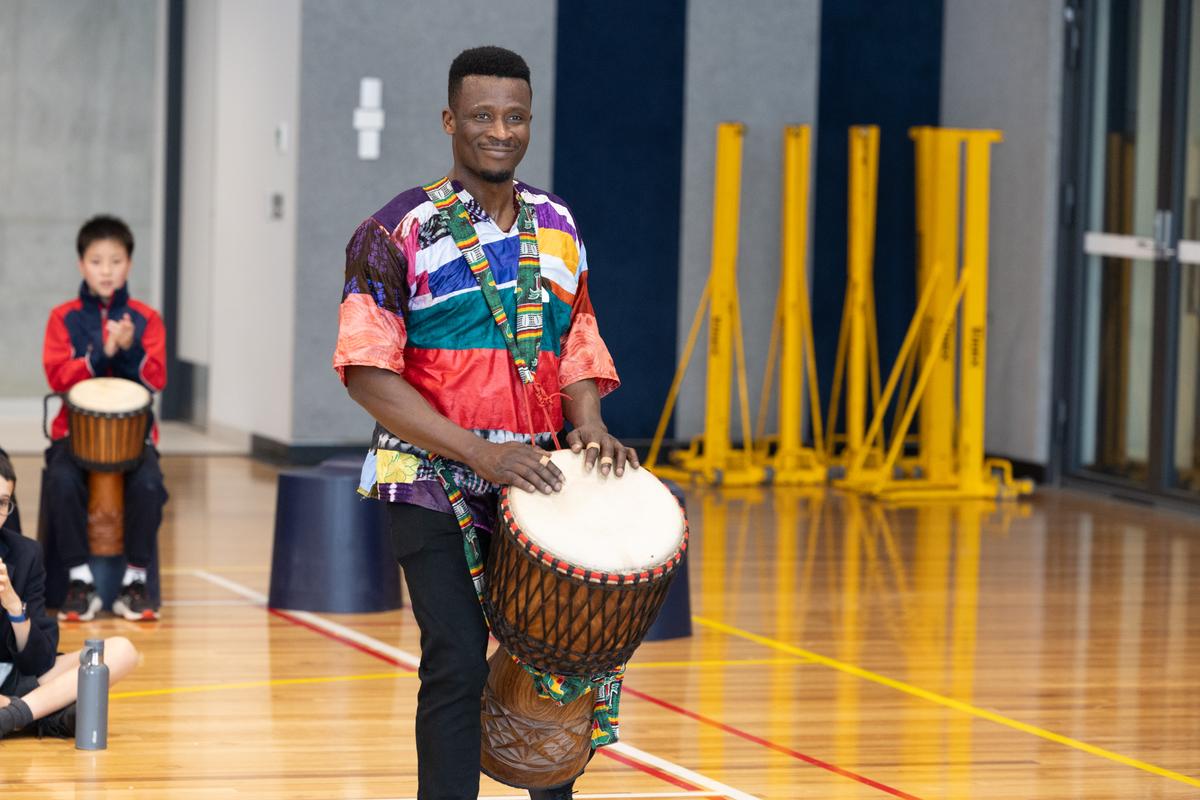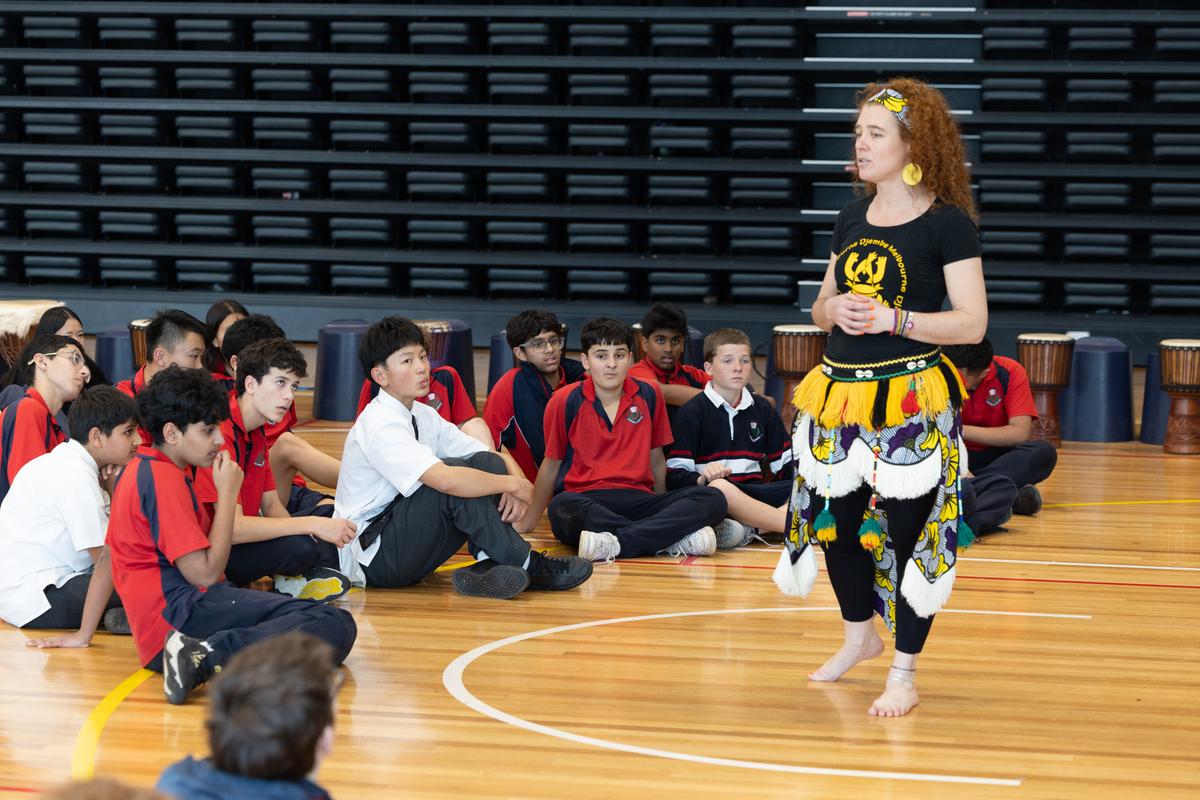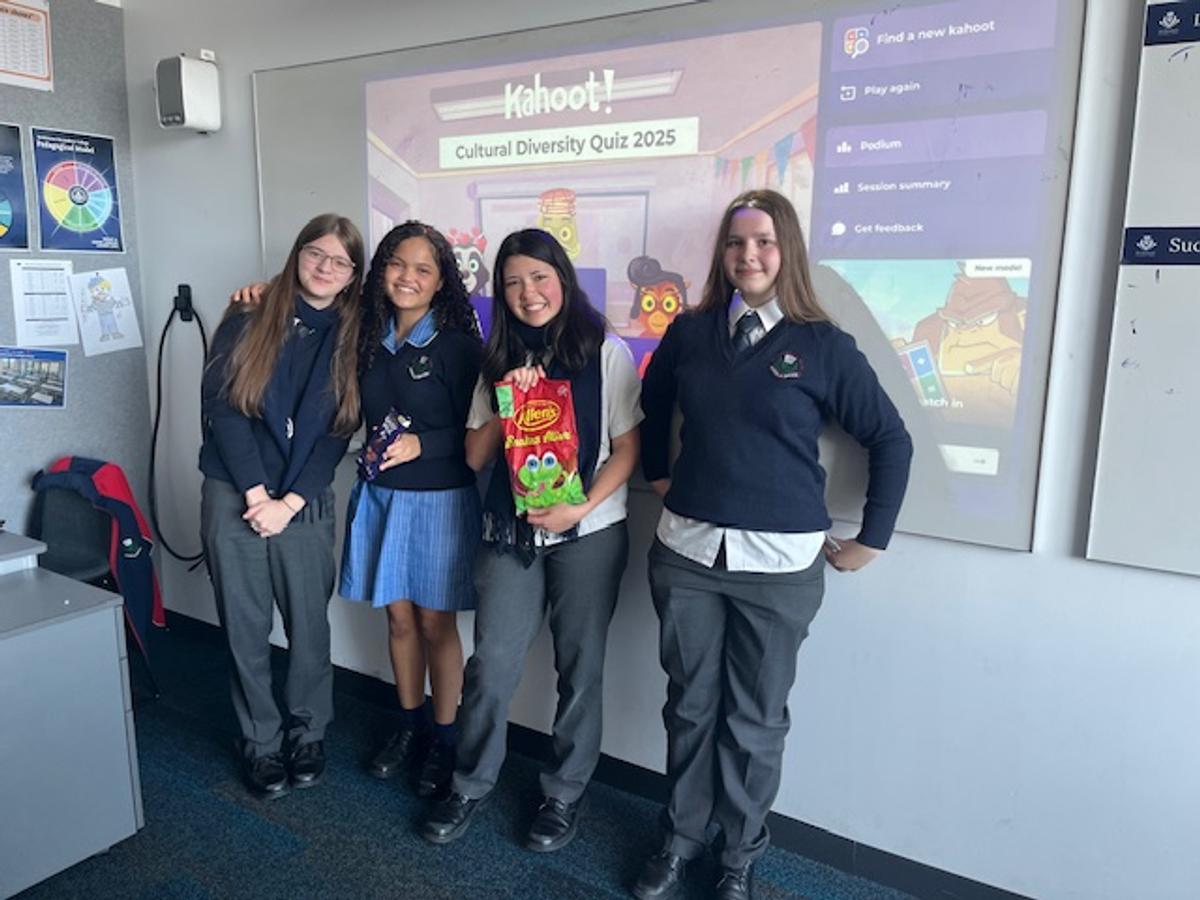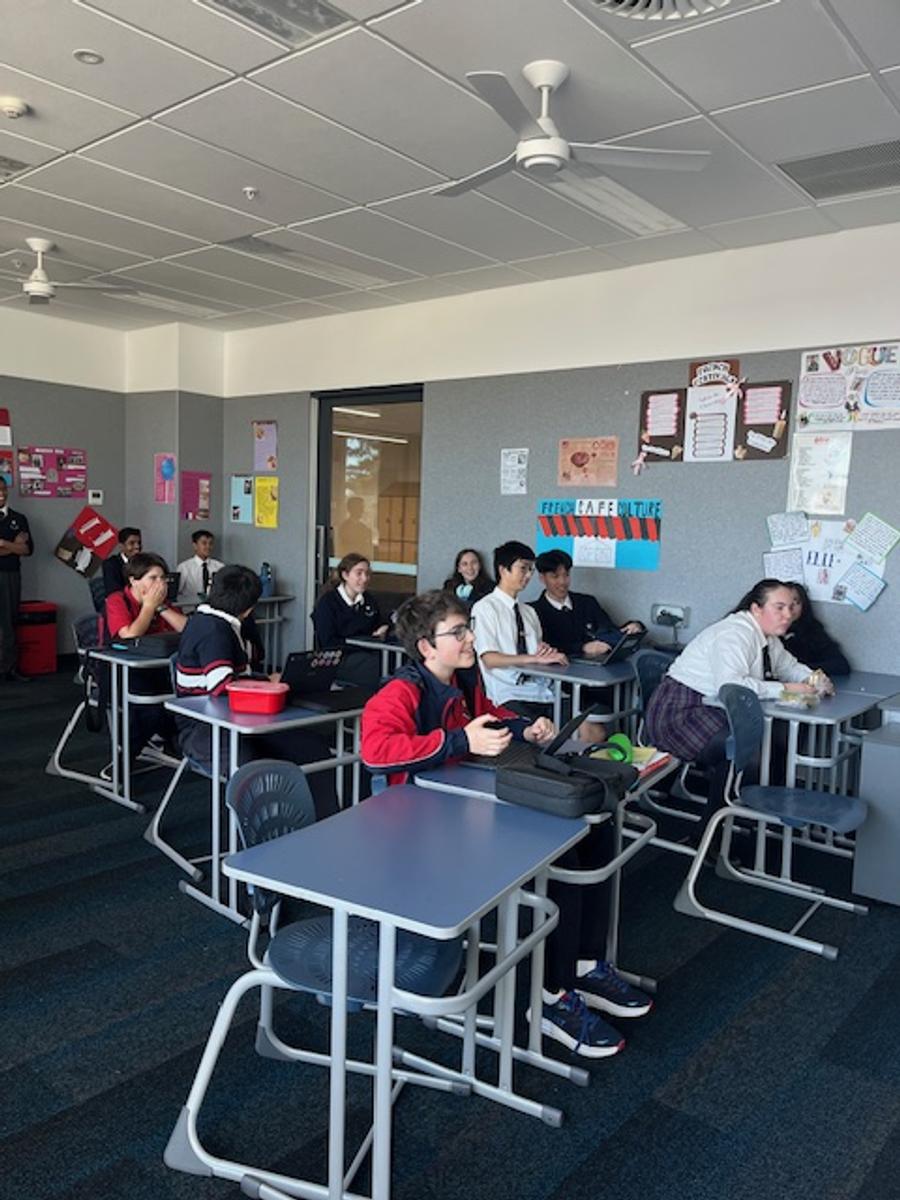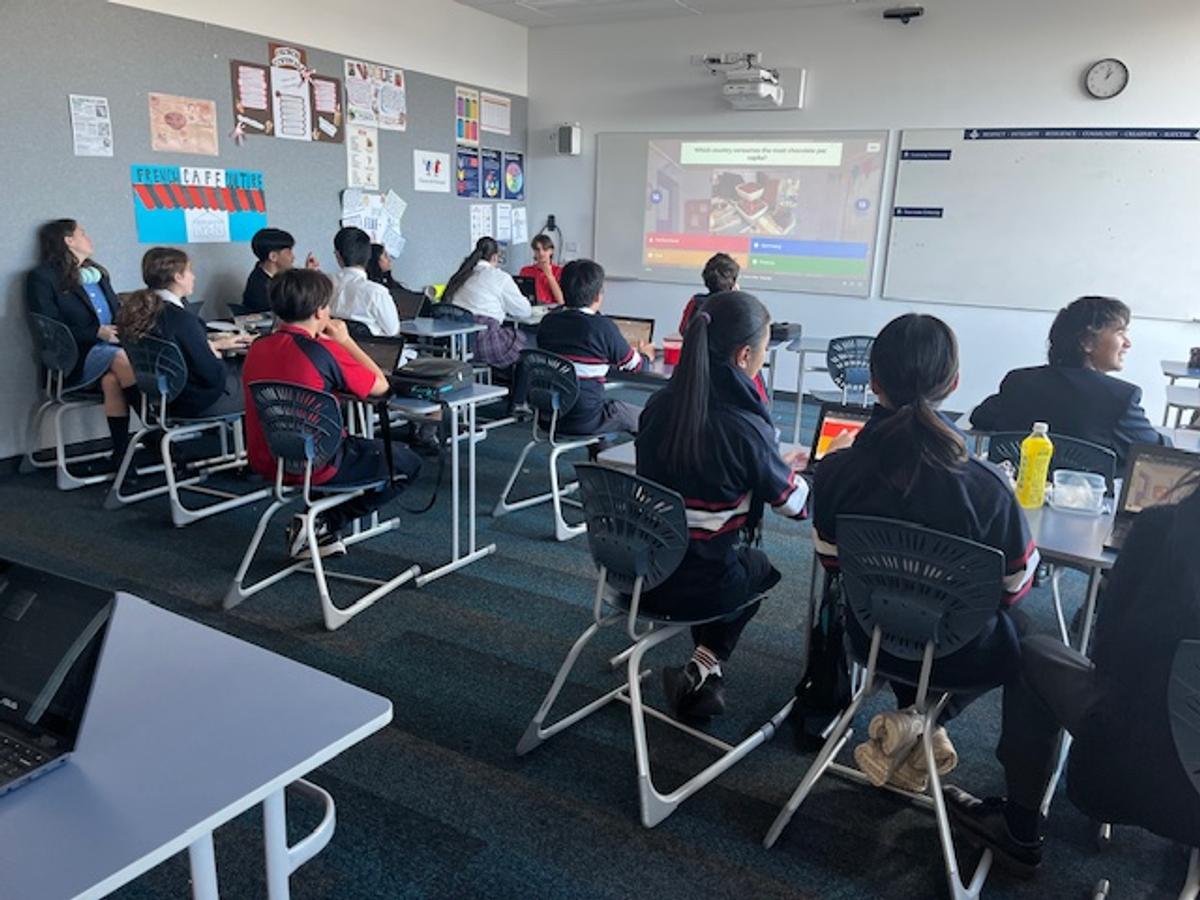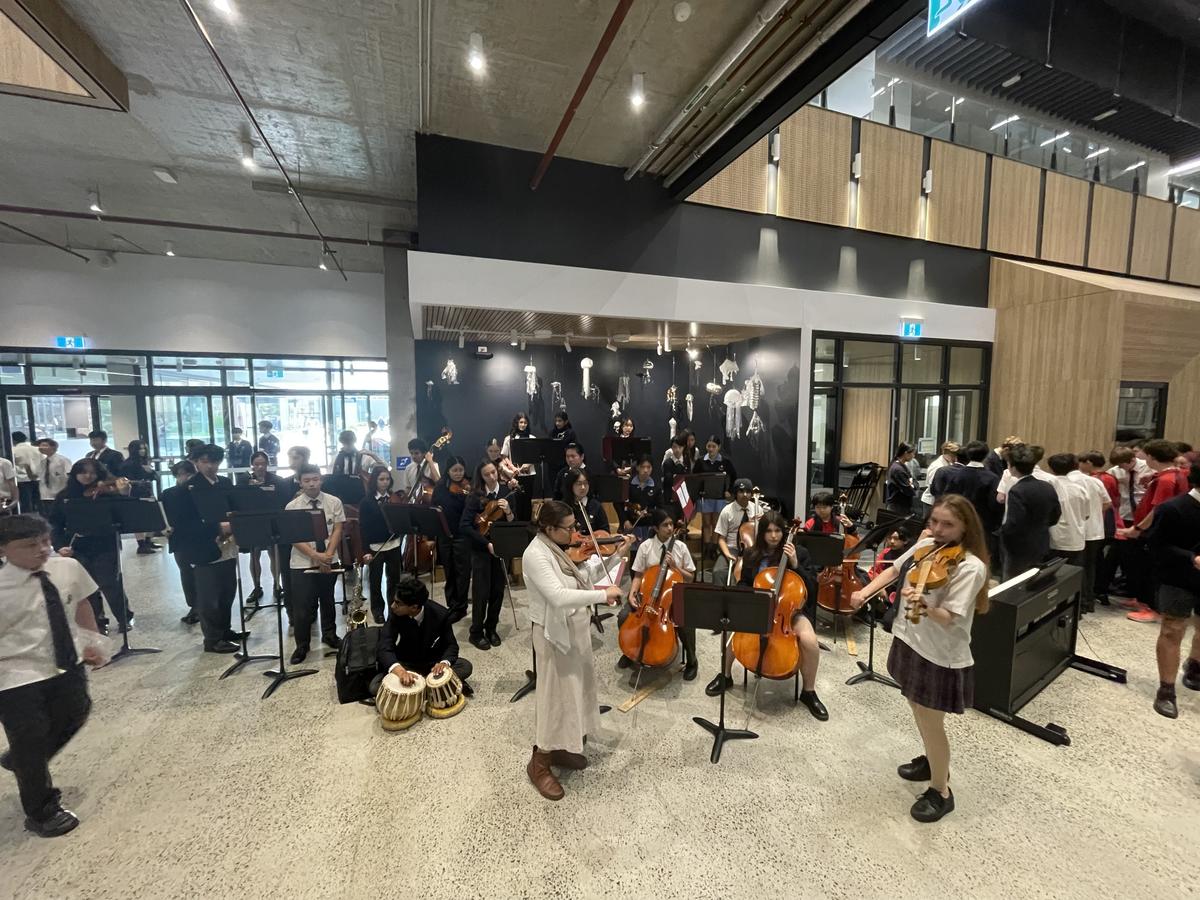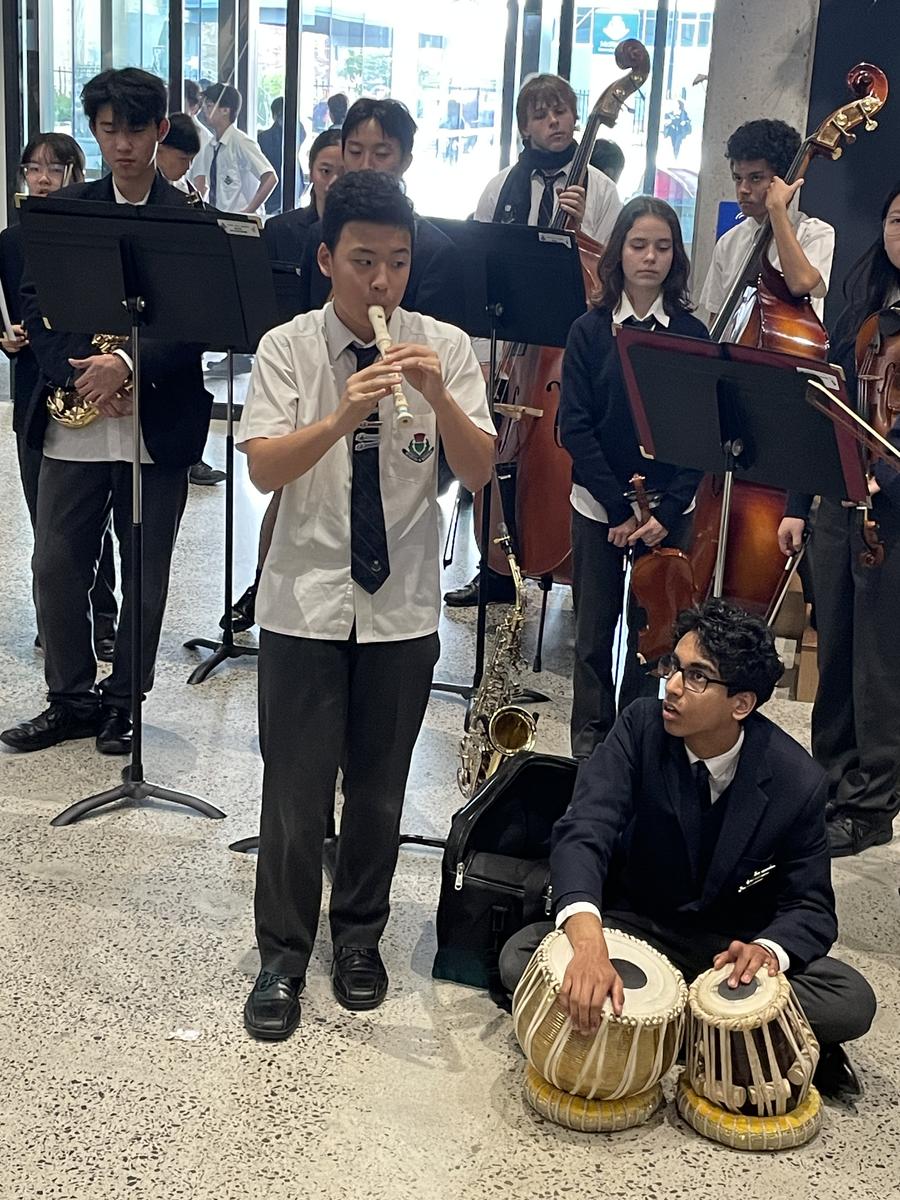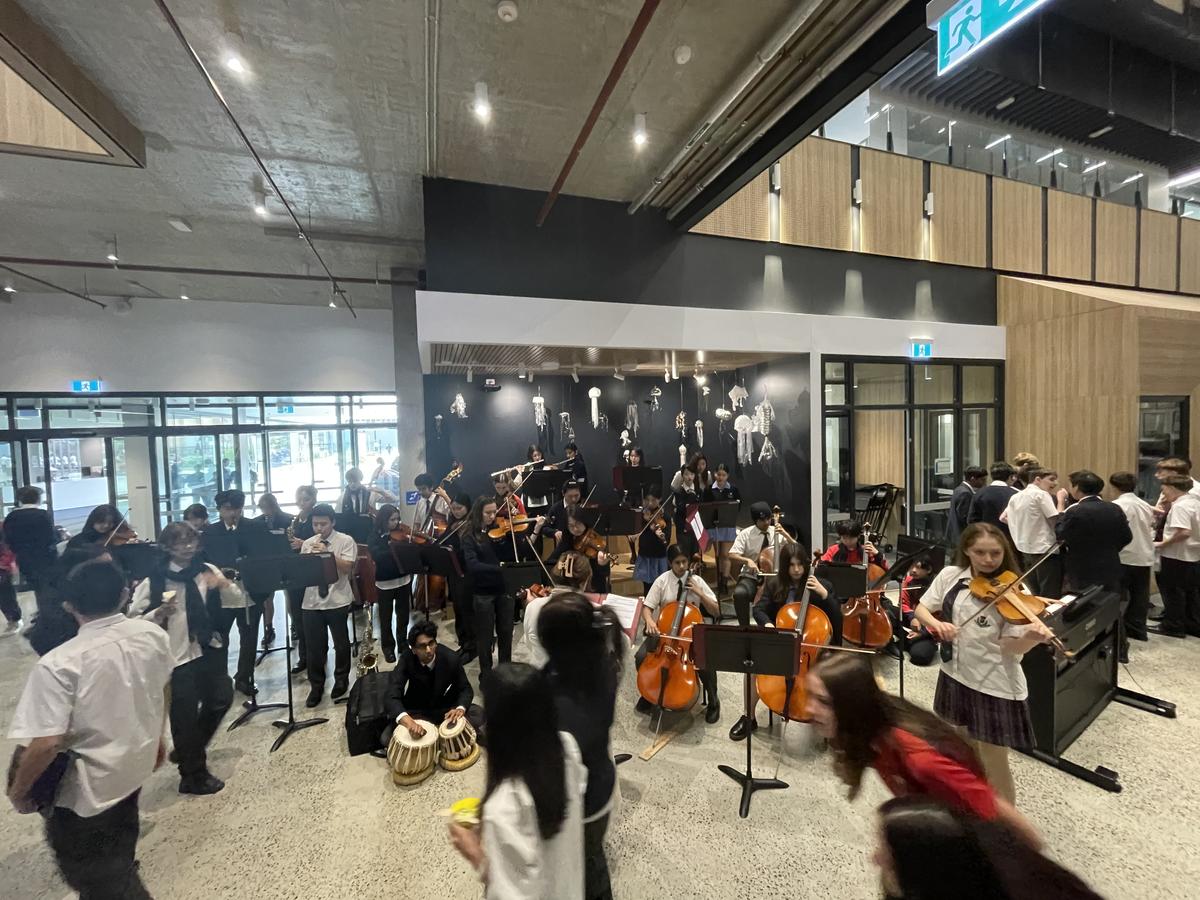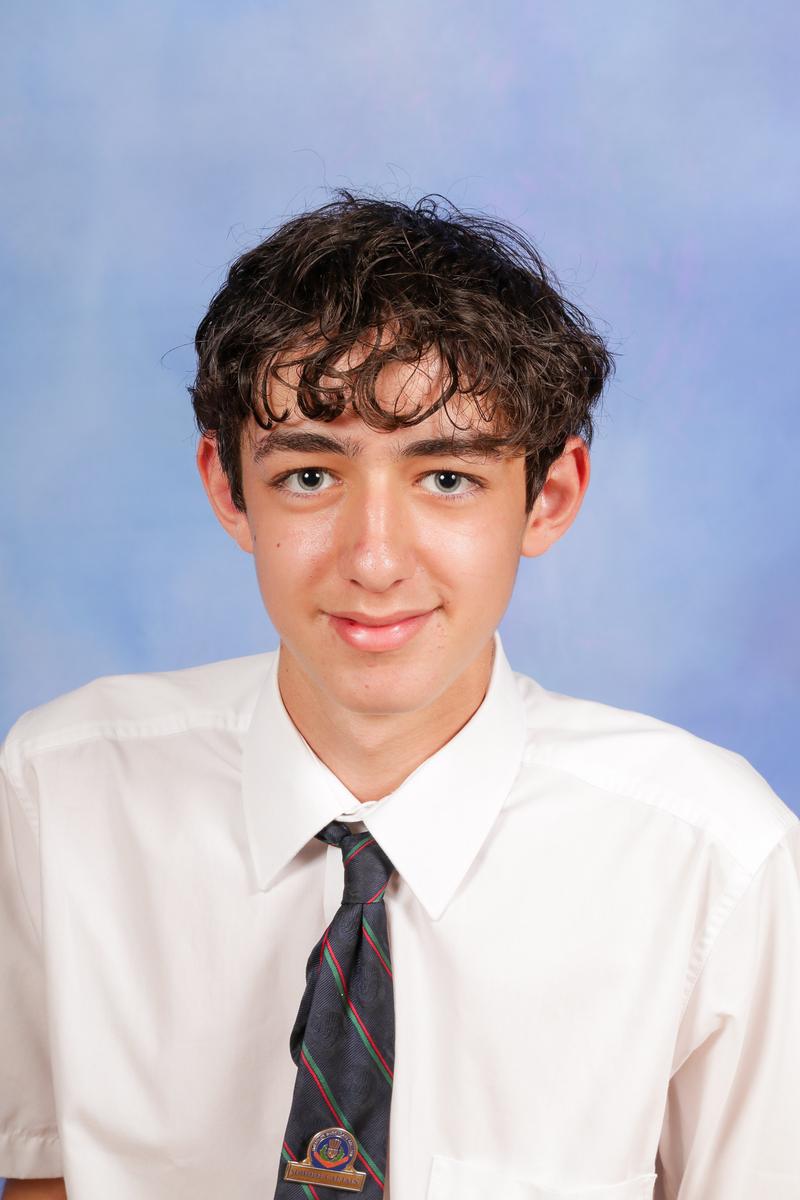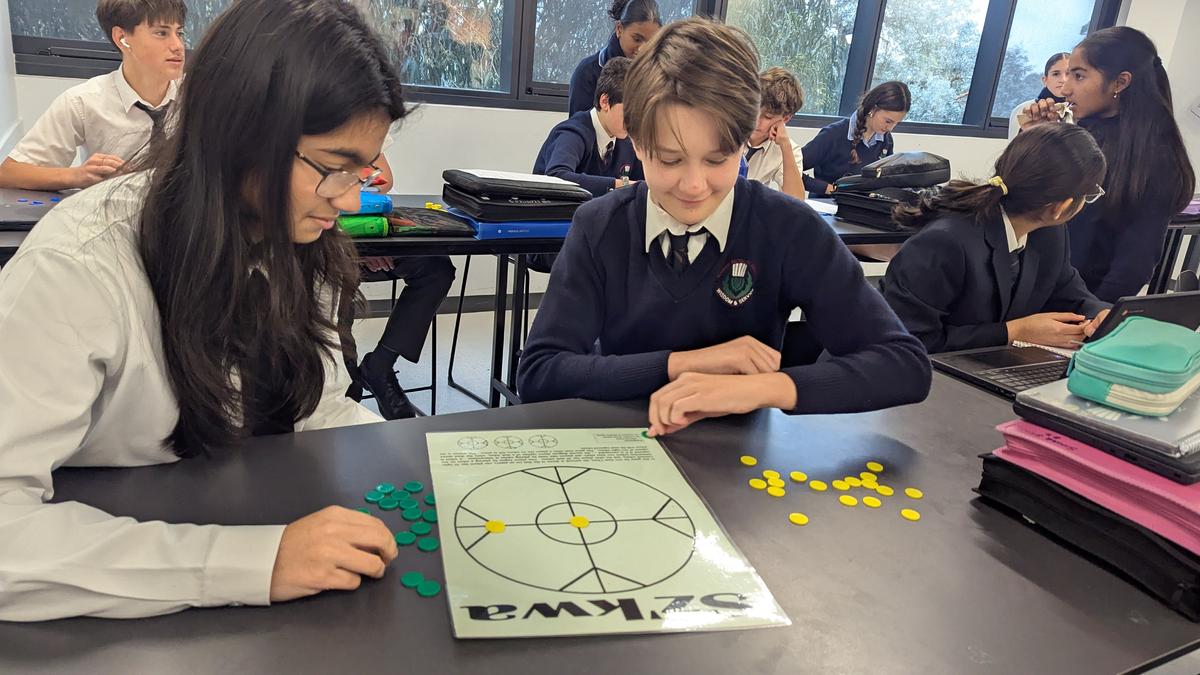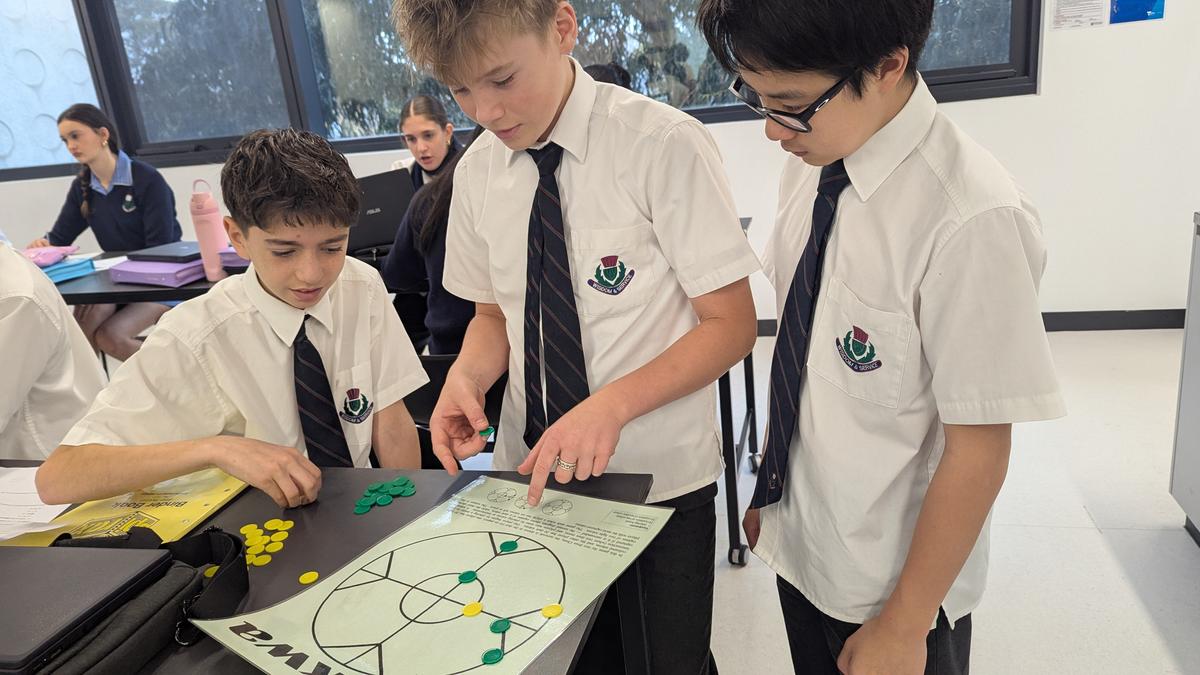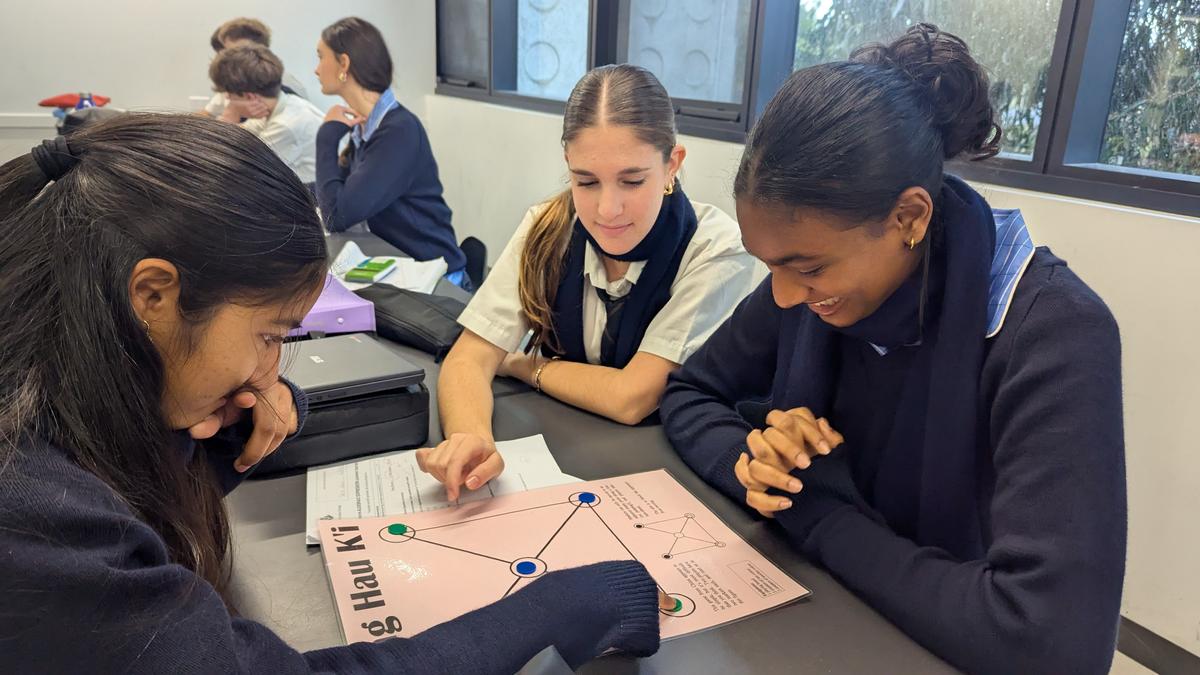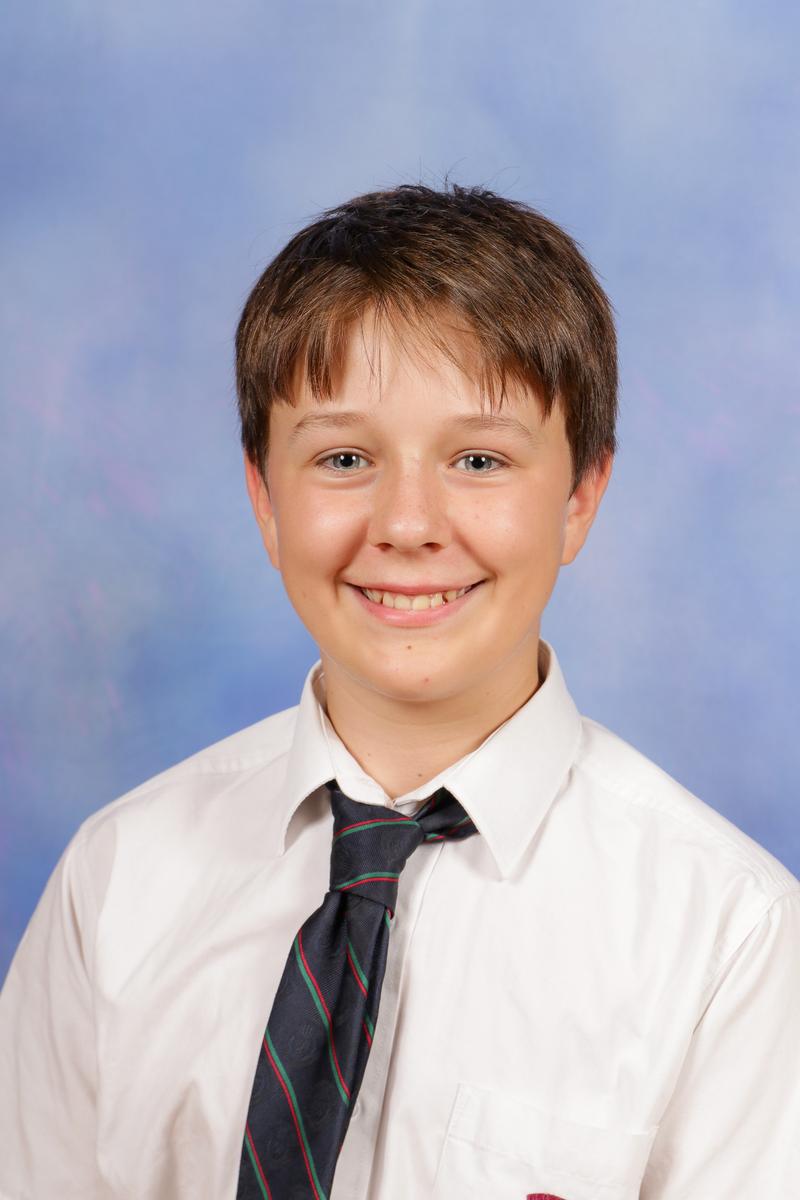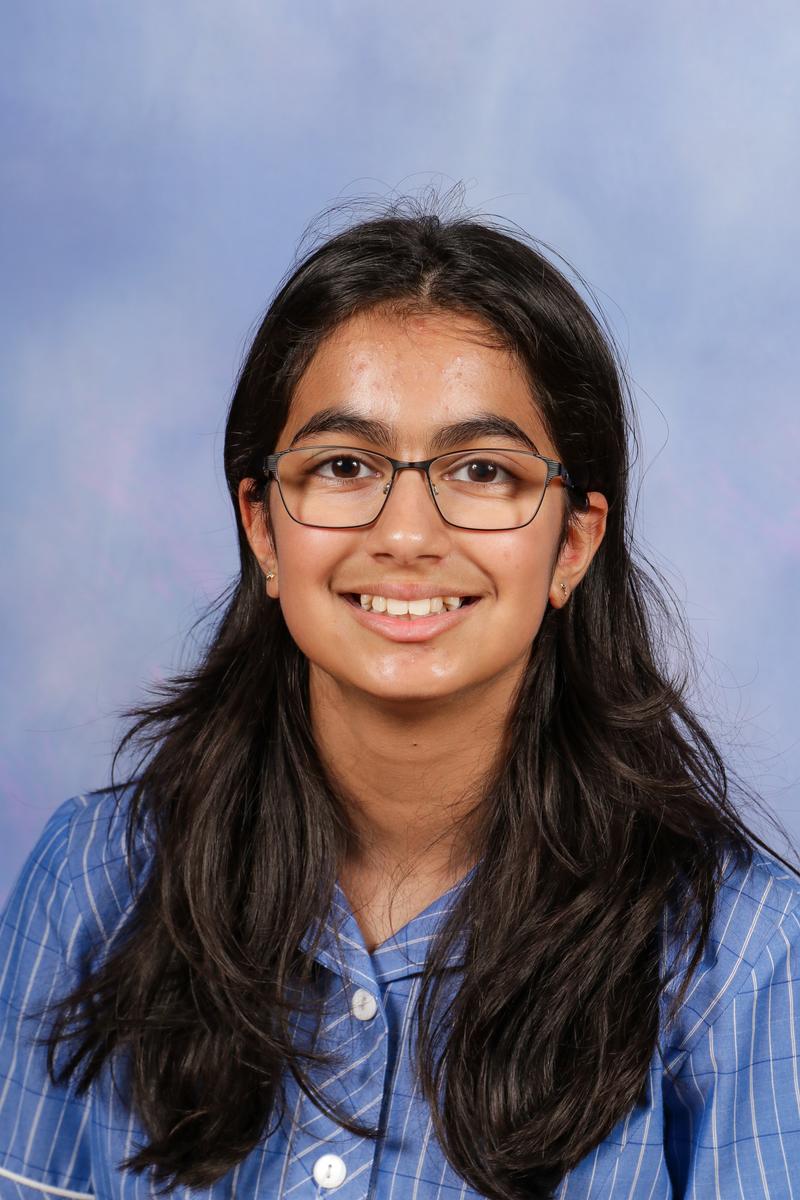CULTURAL DIVERSITY WEEK

YEAR 8 FRENCH DJEMBE INCURSION
On Monday 30 June, all Year 8 French classes participated in an incursion, organised by Madame Remont, to help them learn about the Francophone (French-speaking) world.
Students danced, clapped and drummed their way to a greater understanding of the use of French in Africa as an official language. The lead drummer is originally from Guinea, and speaks French, English and four Guinean languages - he is an excellent role-model for our language students.
Jennifer Lynd
Languages Learning Area Manager
LANGUAGES SOCIETY (EAST CAMPUS) CULTURAL DIVERSITY QUIZ
On Monday 30 June, the Languages Society at East campus ran a trivia quiz as part of Cultural Diversity Week. The Quiz Master, Alon Elboher (Year 8) wrote, constructed and ran the quiz. There was a large turn-out, with the first prize of a 1.3 kilo bag of snakes donated by the Languages Society serving as a major drawcard.
The winners of the quiz were Skye Spooner (Year 9) and Cassie King (Year 9), and the runners-up were Sophie Wein (Year 9) and Alexa Rhode (Year 9) and they received a bar of chocolate.
Jennifer Lynd
Languages Learning Area Manager
CULTURAL DIVERSITY WEEK LUNCHTIME MARKETPLACE PERFORMANCE
On Tuesday 1 July during Cultural Diversity Week the World Music Ensembles from each campus joined forces to perform during the lunchtime marketplace event led by Georgina Mead. The McKinnon Road Campus braved the elements, through the driving rain and carrying their instruments, led by Clare Bugeja.
The ground level foyer was packed with amazing smells from the food vendors, lots of noise from students and the World Music Ensemble adding to the excitement. They played music from the following countries: Ireland, Bulgaria, Peru and Korea. We look forward to adding to our repertoire for next year and exploring music from more countries.
Georgina Mead
Instrumental Music Teacher
VEDIC MATHS
At the conclusion of Term 2, we held Cultural Diversity Week at school. In Maths, in Mrs Nayyar class we were practising Vedic Maths, an ancient Indian system that is well known for speed and clever techniques of calculating equations. We learned quick tricks of multiplication and mental maths through patterns and short-cuts.
What a fun experience it was learning alternative methods that are adopted by different cultures to approach maths.
Itay Volnerman
Year 9 Student
ASIAN BOARD GAMES
On Wednesday 2 July, my maths class and I learnt and played two Asian games to celebrate Cultural Diversity Week. They were called Pong Hau K’i and Sz’kwa, and they originate from China with different versions played all across Asia. We enjoyed Sz’Kwa the most because it required a lot of thought like chess and was also very engaging.
Now, a bit more about the games:
Pong Hau K’i is a traditional two-player strategy game from China, also known in Korea as Umul Gonu. It’s played on a simple five-point board with each player controlling two pieces. Players take turns moving their pieces along connecting lines, aiming to block the opponent from making any moves. Despite its minimal design, it requires strategic thinking and can often end in a draw if both players play optimally. Easy to recreate with paper and coins, it’s a popular educational game for children across Asia.
Sz'kwa is a traditional two-player abstract strategy game from China, commonly played in Taiwan. It features a unique circular board with 21 intersection points, where players take turns placing one of their 20 pieces. The objective is to capture opponent pieces by completely surrounding them. The game ends when all positions are filled or a player has used all their pieces. Often played by children, Sz'kwa is typically set up with simple materials like pebbles on boards drawn in dirt, reflecting its folk origins. Its name translates to "the game of four directions," highlighting its symmetrical design.
Will Thompson & Simar Saini
Year 8 Students

